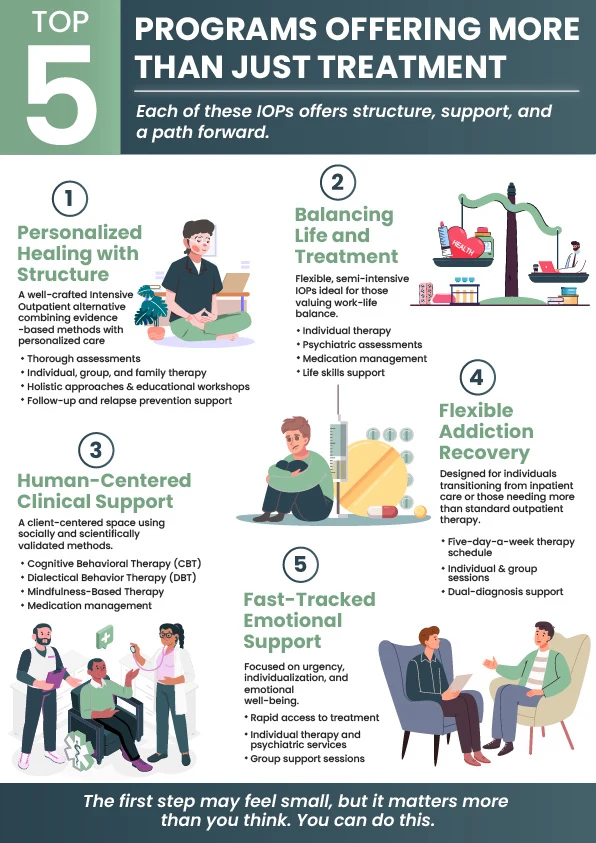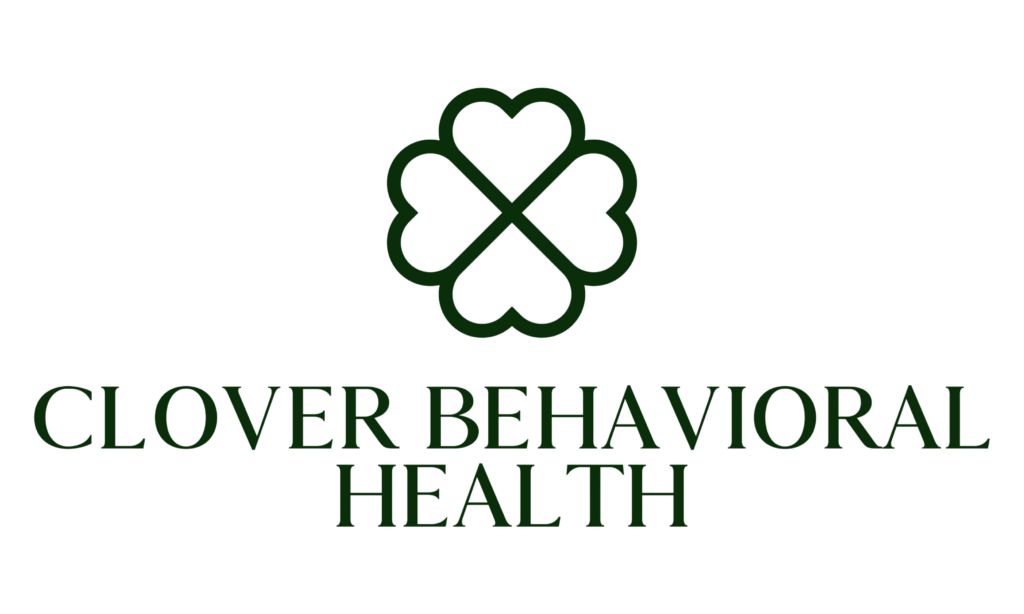Goals of IOP for Mental Health in Tewksbury, MA, that Must be Met to Mark it Complete
The average duration of IOP for mental health is 6-8 weeks, although it can be shorter or longer as per the situation. But what decides that you’re ready to finish intensive outpatient treatment and are ready for the next stage? Since therapy usually follows IOP, experts set a ‘graduation’ criterion you must fulfil to mark this journey complete.
Notably, everyone’s healing journey is different—some show crisis behaviors when they enter IOP, and others just need extra help to function normally. That’s why deciding if a person is ready to leave this treatment is case-specific, with some broad goals that stay constant. Today, we’ll discuss those standard goals experts require you to meet before you leave IOP for mental health in Tewksbury, MA.
Stick around till the end and know what must be there before you transition to a lower level of care.
When To Transition To Lower Level Of Care
Acute Risk has Resolved
Acute risks are those moments when distress becomes so intense that you feel unsafe. And to mark IOP for mental health in Tewksbury, MA, complete, those risks must be managed for you to feel safe.
When you’re struggling, risky situations are impossible to handle. Therefore, you work with a care team to reduce those spikes in emotions during IOP and eventually regain a sense of control.
Here are some severe risks that must be worked on before you leave IOP for mental health in Tewksbury, MA:
- Dangerous suicidal thoughts
- A desire to harm yourself or someone else
- Aggression or risky behavior because of emotional overwhelm
For you to step down to therapy, those crises should no longer be active or dominating your life. You may still have tough days, but the difference after graduating from IOP is that you can now keep yourself safe through those moments.
Note that you won’t be expected to do it all alone because a key part of IOP for mental health in Tewksbury, MA, is having a practical safety plan. The experts make sure you understand that plan fully and have already used it outside of treatment. It includes what warning signs to watch for and stick to the coping skills that help most during critical situations. Now you also know who to contact if you feel yourself slipping.
The confidence in your ability to handle distress is a key parameter that therapists and psychiatrists check before concluding your IOP. Put simply, after acute risk has resolved, you’re stable enough, and weekly therapy becomes the right level of support.
Your Symptoms are Better
IOP is recommended when your symptoms are intense and getting in the way of daily life. And by the time you complete it, those same symptoms should feel noticeably lighter. Since healing is a long process, those issues may not disappear, but the hardest parts should have eased enough.
Here are some symptoms that improve during IOP for mental health in Tewksbury, MA:
- Panic attacks
- Depressive symptoms like low motivation or hopelessness
- Intense mood swings
- Anxiety that otherwise controls your whole day
- Better sleep, energy, and appetite
Your therapist will use tools like the PHQ-9 for depression and the GAD-7 for anxiety to track your changes. These questionnaires give them an objective understanding of your condition, and when scores move from severe into the mild or moderate range, it shows real progress.
Besides numbers, you’ll also notice these changes in your thinking, ability to function properly, and feeling safe with your own emotions. And that shift from barely coping to truly improving shows that you’re ready for the next step in treatment.
You Use Your Skills Outside the Program
A major goal of IOP for mental health in Tewksbury, MA, is to make coping skills a part of your life. Initially, many people only use skills when they’re in a group or with a therapist’s guidance, but eventually it becomes their second nature. Their progress shows up when you’re alone with your thoughts and there’s stress or a triggering situation.
IOP makes you capable enough to recognize what’s happening inside you before it spirals. You understand your personal triggers and notice warning signs, like irritability and thoughts becoming darker or more anxious. And once you notice those signs, you take action.
Here are some ways you can use IOP skills outside the treatment center:
- Pausing to use deep breathing during anxiety
- Practicing the opposite action when depression pulls you away from life
- Using emotion-regulation strategies when triggered
- Reaching out for support early instead of waiting for a crisis
Slowly, your confidence grows, and you start to trust yourself because you have proof you can handle the hard moments.
Daily Life is Manageable
IOP for mental health in Tewksbury, MA, has done its job when everyday life no longer feels impossible. Because when most people enter this treatment, even the simplest tasks like answering a text or doing bare minimum house chores can feel like climbing a mountain.
Since their emotional distress drains their motivation, it eventually pulls them away from work, school, and relationships. That’s why IOP provides structure and support to rebuild those foundational habits piece by piece.
One feels capable enough of taking care of their core needs and responsibilities by the end of an IOP treatment. Here are some examples of what manageable daily life looks like:
- Keeping a basic hygiene and self-care routine most days
- Sleeping more regularly
- Re-engaging with family and social life (or work and school)
- Handling stress without needing urgent intervention
- Being able to plan and follow through on small goals
Once a person handles these things after intense mental health treatment, it means that their emotional storms are calming. If there are still breakdowns (which will happen), they are less severe, and you feel more in control.
You Can Handle Stress and Emotions Better
Whether you’re struggling with depression, PTSD, or anxiety, your strong emotions can feel like explosions. They are intense and impossible to control. For example, stress may result in a panic attack or an urge to harm yourself. That’s why IOP for mental health in Tewksbury, MA, gives you healthier ways to navigate those moments.
When you’re ready for therapy, you still face those emotions, but they don’t dictate your actions anymore.
This progress can look like this:
- Pausing before reacting
- Being able to calm down
- Setting boundaries with others
- Expressing what you need clearly
Regaining control creates space for hope and healthier relationships. Such emotional stability is what makes the step down to regular therapy safe.

Stepping Forward with Support
Finishing IOP for mental health in Tewksbury, MA, means you’ve made meaningful progress. After that, weekly therapy will further help you keep building on what you’ve learned without the intensity of daily treatment.
So if you’re done battling with things alone and need help, Clover Behavioral Health is here. Call us at 978-216-7765 and let’s find a way out of this gloomy phase.














